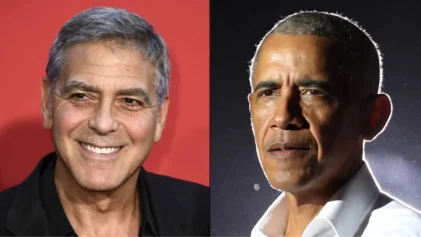As President Obama announced $33 billion in new American investment commitments in Africa, primarily from the private sector, he also delivered a line that is being widely interpreted as a swipe at China, which has surpassed the U.S. as the African continent’s largest trading partner.
“We don’t look to Africa simply for its natural resources. We recognize Africa for its greatest resource, which is its people and its talents and its potential,” the president said to the unprecedented gathering of more than 50 African heads of state during a three-day summit. “We don’t simply want to extract minerals from the ground for our growth. We want to build partnerships that create jobs and opportunity for all our peoples, that unleash the next era of African growth.”
He didn’t say “China,” but most observers knew exactly who the president as referring to with the swipe. It is the same theme that has been spouted by other White House officials in the lead-up to the summit.
“We do believe we bring something unique to the table,” Ben Rhodes, Obama’s deputy national security adviser, told the Huffington Post. “We are less focused on resources from Africa and more focused on deepening trade and investment relationships.”
The second day of the summit was focused on trade. Vice President Joe Biden called Africa the “continent of limitless promise.”
“It’s never been a good bet to bet against America, and America is betting on Africa,” Biden said.
In soaring rhetoric, Secretary of State John Kerry said of the summit, “If everybody gets this right, this meeting and this moment and the days ahead of us can literally become a pivotal defining moment for our future history and for the world.”
With companies like General Electric and Coca-Cola leading the way, American industry is poised to spend billions in Africa—clearly with the hope that many more billions will flow back into the U.S. The White House event featured representatives from nearly 100 American and African companies, who talked about increasing their partnerships.
Former President Bill Clinton said the U.S. has “only barely scratched the surface” of Africa’s economic potential.
“We also realize we have some catching up to do,” said Michael Bloomberg, the former New York City mayor and billionaire businessman. “We are letting Europe and China go faster than the U.S.”
Some African leaders were not pleased that the gathering focused too much on Africa’s problems, according to a story in the Guardian. President Obama didn’t help this perception when he said, “People should be able to start a business and ship their goods without having to pay a bribe or hire somebody’s cousin. And we have to talk about security and peace because the future belongs to those who build, not those who destroy.”
Tunisian President Moncef Marzouki said foreign businesses have a responsibility to do more than seek profit. He said they should invest in democratic states that are working to combat corruption, educate their populations and create equality.
“By sending this message everywhere that good governance is for the business community is something that is very important and is as important as making money,” he said. “I must stress we don’t need development which is not useful for the population. We don’t want to widen the gap between rich and poor because this will lead to more instability and more pressure and more civil war.”


